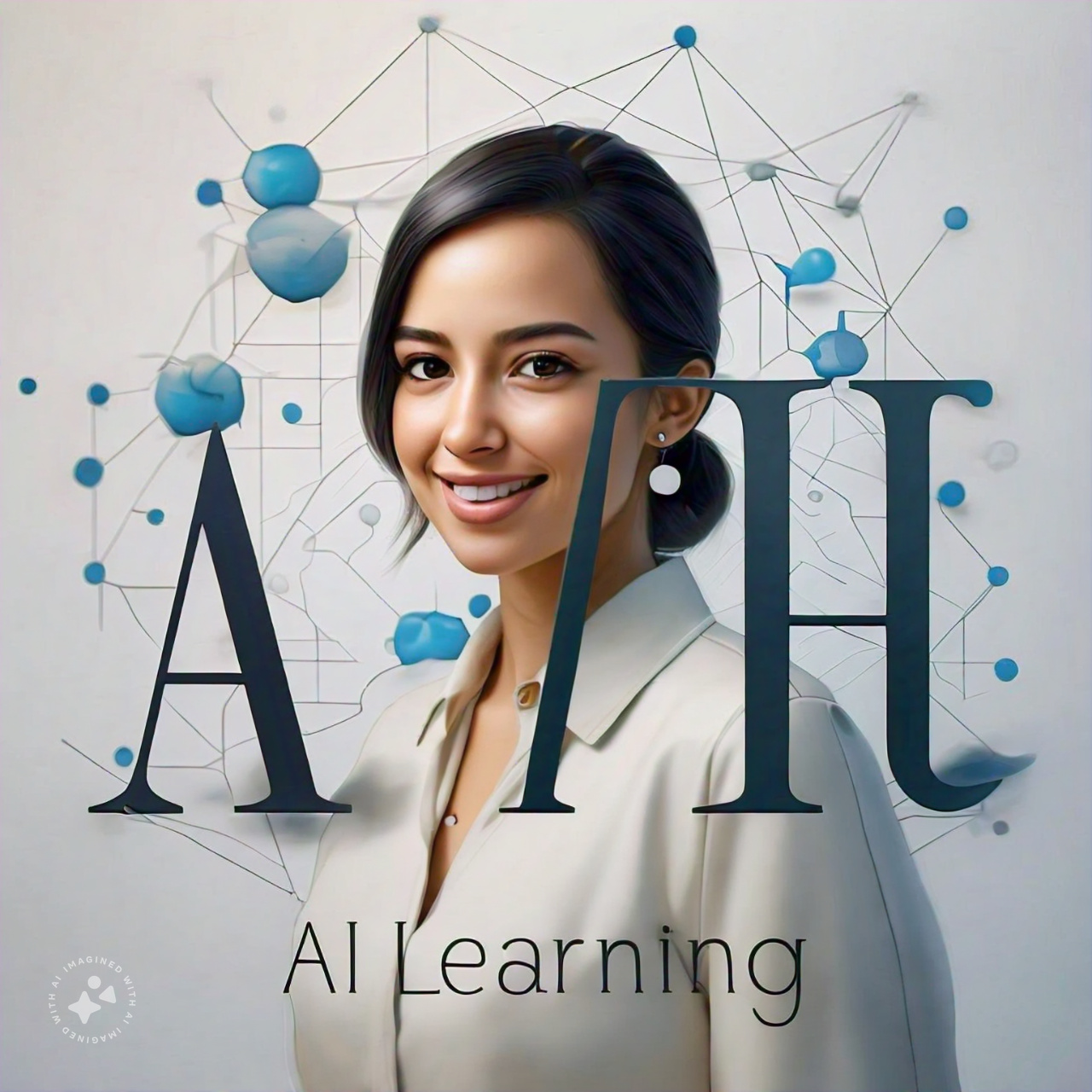
AI Learning! Imagine a world where your computer understands you as well as your best friend. That's the magic of AI learning!
Just like teaching your dog to fetch or your cat to use a scratching post, we're teaching computers to think and learn. But instead of treats, we use data and algorithms.
Did you know that AI can now learn faster than humans in some areas? A study by DeepMind in 2023 showed that AI could master complex games in just a few hours,
while humans might take years to reach the same level of skill. This rapid learning ability is transforming industries from healthcare to education!
What if your homework could do itself? While that might sound like a dream come true, it raises an important question:
How do we balance the benefits of AI with the need for human learning and creativity?
 Caption: A medical licensing exam score report with a high score. The background shows a doctor's office, with medical books and a stethoscope subtly in view, emphasizing the real-world impact of AI in medical fields.
Caption: A medical licensing exam score report with a high score. The background shows a doctor's office, with medical books and a stethoscope subtly in view, emphasizing the real-world impact of AI in medical fields.Last summer, my 10-year-old niece, Lily, was struggling with math. We introduced her to an AI-powered math tutor app.
At first, she was skeptical, but within weeks, her grades improved dramatically. The app adapted to her learning style, offering personalized lessons and fun challenges.
Lily went from dreading math to excitedly showing off her new skills. It was like watching a light bulb turn on in her mind!
AI learning is revolutionizing the way we teach and learn. It's not just about computers getting smarter; it's about making learning more accessible, personalized, and fun for everyone.
According to a recent report by UNESCO, AI in education could help address the global learning crisis, potentially benefiting 825 million students worldwide.
AI Learning Statistics
Distribution of AI Learning
AI Learning Overview
Category
Percentage
AI Courses
40%
Workforce Impact
25%
Applications
20%
Research Funding
15%
From virtual tutors that never get tired to adaptive textbooks that change based on your understanding, AI is transforming education in ways we could only dream of a few years ago.
It's like having a super-smart friend who's always ready to help you learn, 24/7!
But here's the exciting part: we're just scratching the surface of what AI learning can do. As we continue to teach our computers, they're teaching us new things too.
It's a partnership that's opening up a world of possibilities, making learning an adventure for everyone, regardless of age or background.
So, are you ready to explore the amazing world of AI learning? Buckle up, because this journey is going to be
as thrilling as teaching your pet an incredible new trick – only this time, the 'pet' might just change the world!
The ABC's of AI Learning
Let's dive into the exciting world of AI learning! Imagine teaching your computer to be as smart as you are - that's what AI learning is all about. Here's how it works:
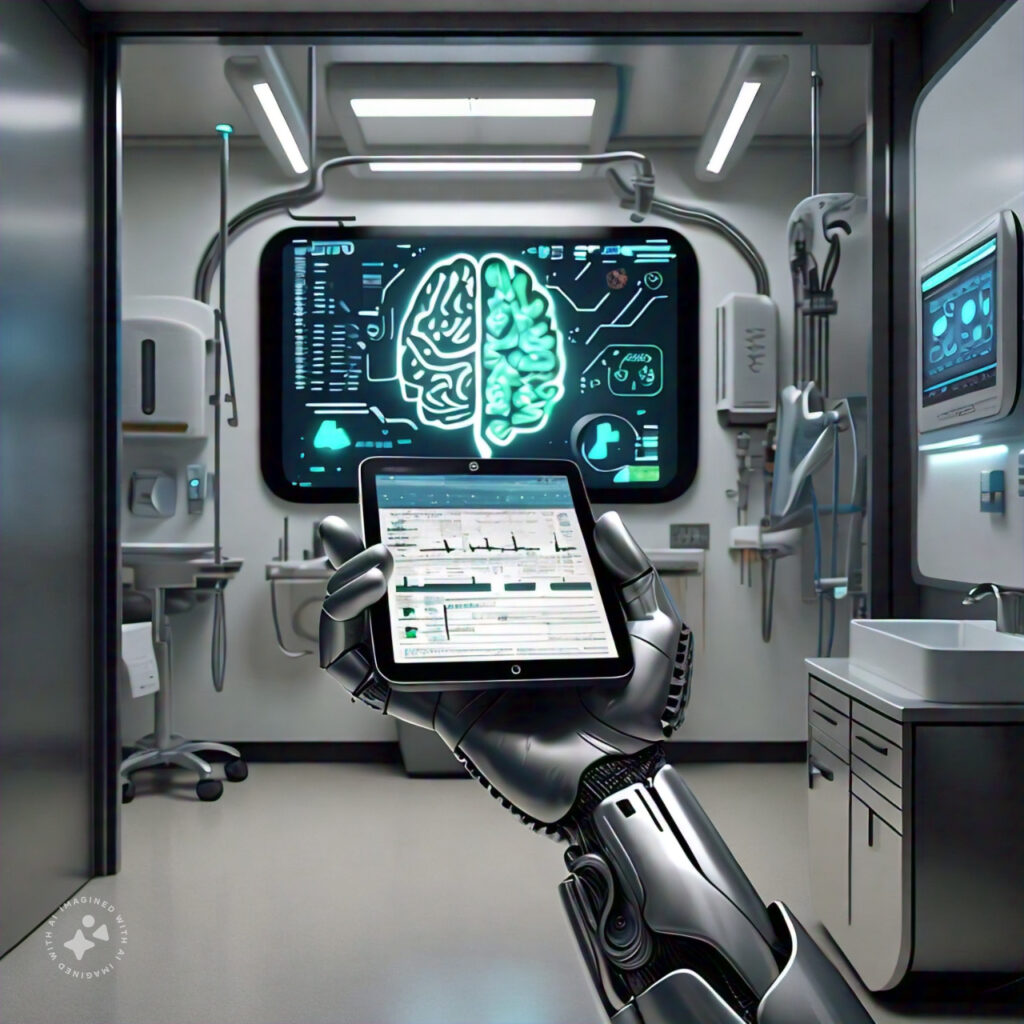 Caption: The future of medicine: AI-powered precision and efficiency.
Caption: The future of medicine: AI-powered precision and efficiency.Machine Learning: Like Giving Computers Homework
Machine Learning is like giving your computer a big pile of homework and letting it figure out the answers on its own.
Instead of telling the computer exactly what to do, we give it lots of examples and let it learn from them.
For instance, if we want to teach a computer to recognize cats, we show it thousands of cat pictures. The computer looks at all these pictures and
starts to understand what makes a cat a cat. According to a recent study by MIT, machine learning models are getting smarter and
can now learn from much less data than before, just like how you can learn to recognize a new animal after seeing it just a few times!
AI Learning Journey
What is AI?
AI is like teaching computers to think and learn like humans.
Machine Learning
Computers learn from data, improving their performance over time.
AI in Healthcare
AI helps doctors diagnose diseases and develop new treatments faster.
AI Learning Courses
Many online platforms offer AI courses for beginners and experts alike.
Getting Started
Start with basic programming and gradually move to AI concepts.
AI Tools
Popular AI tools include TensorFlow, PyTorch, and Scikit-learn.
AI Ethics
Ensuring AI is fair, transparent, and respects privacy is crucial.
Future of AI
AI will continue to revolutionize industries and create new opportunities.
Deep Learning: Computers Doing Really Hard Homework
Deep Learning is like when your computer tackles the most challenging homework problems. It uses something called neural networks, which are inspired by how our brains work.
Imagine you're trying to solve a super complicated puzzle. Deep Learning is like your computer breaking that puzzle into tiny pieces,
solving each piece, and then putting them all back together to get the big picture. Google's DeepMind used Deep
Learning to solve one of biology's biggest puzzles - how proteins fold - which could help create new medicines!
Key Insights in AI Learning
The Future of AI Learning
AI learning is set to revolutionize industries across the board. From healthcare to finance, AI's ability to process vast amounts of data and learn from it will lead to more efficient systems and breakthrough discoveries.
Explore Future Trends
Ethical Considerations in AI
As AI becomes more prevalent, it's crucial to address ethical concerns. Issues like data privacy, algorithmic bias, and the impact on employment need careful consideration to ensure AI benefits society as a whole.
Learn About AI Ethics
AI in Education
AI is transforming education by providing personalized learning experiences, automating administrative tasks, and offering intelligent tutoring systems. This technology has the potential to make quality education more accessible to all.
Discover AI in Education
AI and Healthcare
AI is revolutionizing healthcare through improved diagnostics, personalized treatment plans, and drug discovery. Machine learning algorithms can analyze medical images and patient data to detect diseases earlier and more accurately than ever before.
Explore AI in Healthcare
Neural Networks: A Computer's Brain Cells
Neural Networks are like giving your computer its own set of brain cells. These "artificial neurons" work together, just like the neurons in our brains, to help the computer think and make decisions.
Picture a big group of friends passing notes to each other. Each friend (or neuron) gets information, thinks about it a bit, and then passes it on to other friends.
This is how neural networks process information! A fascinating study from Stanford shows that these neural networks are getting so good that they can now
understand and generate human-like text, opening up exciting possibilities for the future of AI.
By understanding these ABCs of AI learning, we're peeking into the future of technology. Who knows?
Maybe one day, you'll be the one teaching computers to be even smarter!
AI in Hospitals: Helping Doctors Be Superheroes
Imagine doctors with superpowers - that's what AI is doing in hospitals! Let's explore how these digital helpers are making healthcare amazing.
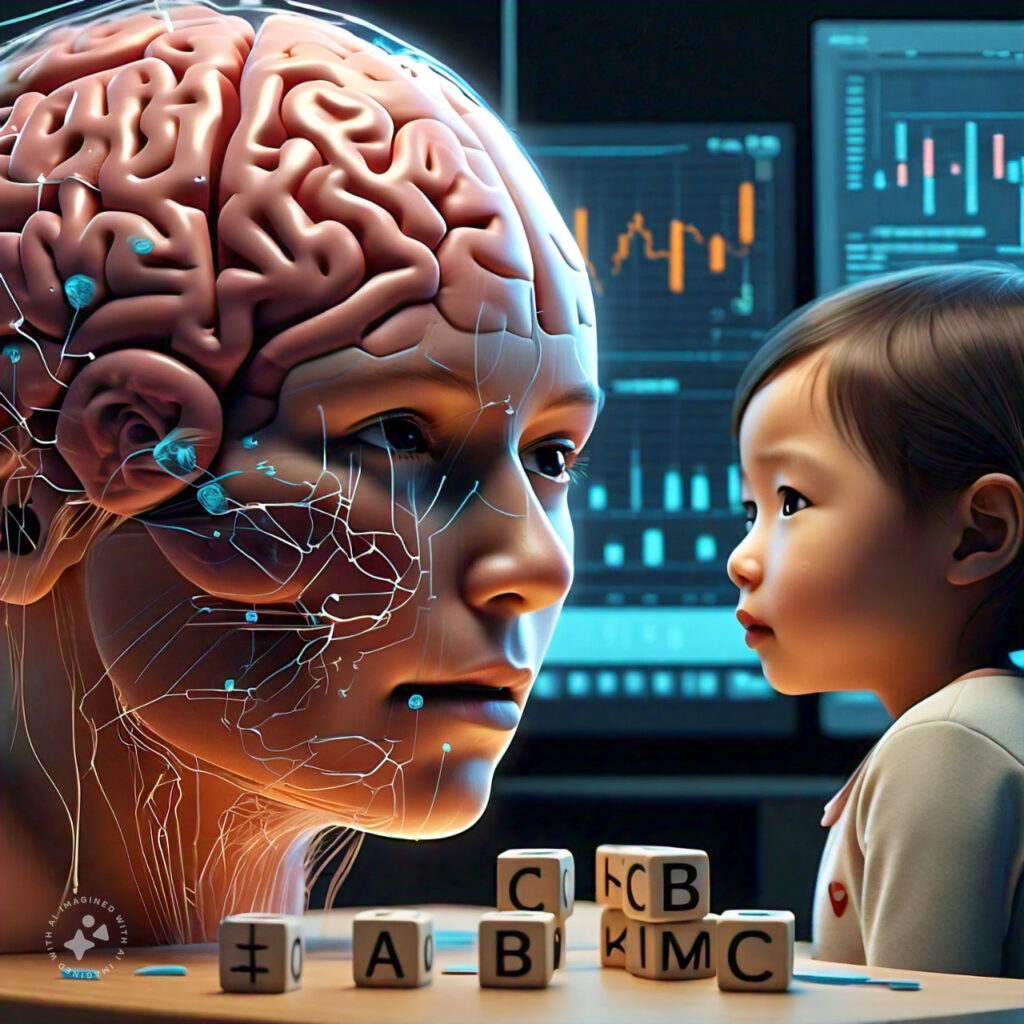 Caption: Learning through examples: A child and AI discover patterns together.
Caption: Learning through examples: A child and AI discover patterns together.Finding Illnesses Faster Than You Can Say "Achoo!"
AI is like a super-smart detective that can spot illnesses really quickly. It looks at things like x-rays and blood tests faster than any human doctor could. A study in Nature showed that AI can find lung cancer on chest x-rays up to a year earlier than human doctors! That's like giving doctors x-ray vision.
For example, a cool AI tool called Buoy Health works like a friendly robot doctor. You tell it how you're feeling, and it helps figure out what might be wrong. It's like having a doctor in your pocket, ready to help 24/7!
AI Learning Progress Timeline
1956:
Dartmouth Conference - Birth of AI
The term "Artificial Intelligence" was coined at this conference, marking the official beginning of AI as a field of study.
1966:
ELIZA - First Chatbot
ELIZA, created by Joseph Weizenbaum, was one of the first chatbots that could engage in conversation using pattern matching and substitution methodology.
1980:
Knowledge-Based Systems
The development of expert systems and knowledge-based AI marked a shift towards more practical applications of AI in various domains.
1997:
Deep Blue beats Chess Champion
IBM's Deep Blue defeated world chess champion Garry Kasparov, demonstrating the power of AI in complex strategic games.
2006:
Rise of Deep Learning
Geoffrey Hinton's work on deep learning algorithms paved the way for significant advancements in AI, particularly in areas like image and speech recognition.
2012:
ImageNet and Convolutional Networks
The ImageNet competition demonstrated the power of deep convolutional neural networks in image recognition tasks, sparking a revolution in computer vision.
2016:
AlphaGo beats Go Champion
Google's AlphaGo defeated world Go champion Lee Sedol, showcasing AI's ability to master even more complex games than chess.
2020:
AI in Healthcare and COVID-19 analysis
AI played a crucial role in accelerating COVID-19 research, drug discovery, and patient care, demonstrating its potential in healthcare and crisis management.
Creating New Medicines Like a Science Experiment
AI is also helping to make new medicines faster than ever before. It's like having a super-smart lab assistant that never gets tired. Atomwise, an AI company, can check millions of possible medicines in just one day. That's faster than a speeding bullet!
In a recent breakthrough, AI discovered a new antibiotic that can fight bacteria that other medicines can't beat. It's like finding a new superhero to fight the bad guys that other heroes couldn't stop.
Taking Care of Patients with Robot Helpers
Hospitals are getting help from robot friends too! These robots can do things like deliver medicine, clean rooms, and even keep patients company. TUG robots in hospitals can carry heavy things and never get tired, giving nurses more time to care for patients.
In Japan, a cuddly robot seal named PARO helps calm patients and makes them feel better. It's like having a pet in the hospital that never needs feeding!
Key Features of AI Learning
Adaptive Learning
AI tailors the learning experience to individual needs
AI algorithms analyze user performance and adjust content difficulty, pacing, and style to optimize learning outcomes for each individual.
Learn More
Natural Language Processing
AI understands and generates human-like text
NLP enables AI to interpret and respond to human language, facilitating more natural interactions in educational chatbots and voice assistants.
Learn More
Predictive Analytics
AI predicts future performance and learning needs
By analyzing patterns in learning data, AI can predict future performance, identify potential challenges, and recommend personalized interventions.
Learn More
Automated Assessment
AI evaluates and provides feedback on learner performance
AI-powered systems can grade assignments, provide instant feedback, and offer detailed insights into learner progress, saving time for educators.
Learn More
Story Time: How AI Helped a Sick Kid Get Better
Let me tell you a true story about a little girl named Erin. She was very sick, and doctors couldn't figure out why.
Then, they used an AI system called MOON that looked at Erin's genes. In just a few hours, it found out what was making Erin sick when human doctors had been puzzled for months!
Thanks to AI, doctors knew exactly how to help Erin, and she got better. It's like AI gave the doctors a magic wand to solve a mystery and save the day!
AI is making hospitals more like the amazing places we see in superhero movies. It's helping doctors find illnesses faster, make better medicines,
and take care of patients in new and exciting ways. Who knows? Maybe one day, you'll be the one creating new AI superheroes to help even more people!
https://www.youtube.com/watch?v=okfw4qXtDVM
Create insanely accurate subtitles for FREE || Whisper AI Tutorial
Want to Learn About AI? Here are Some Fun Classes!
Learning about AI doesn't have to be boring! Let's explore some exciting courses that make AI feel like a fun adventure:
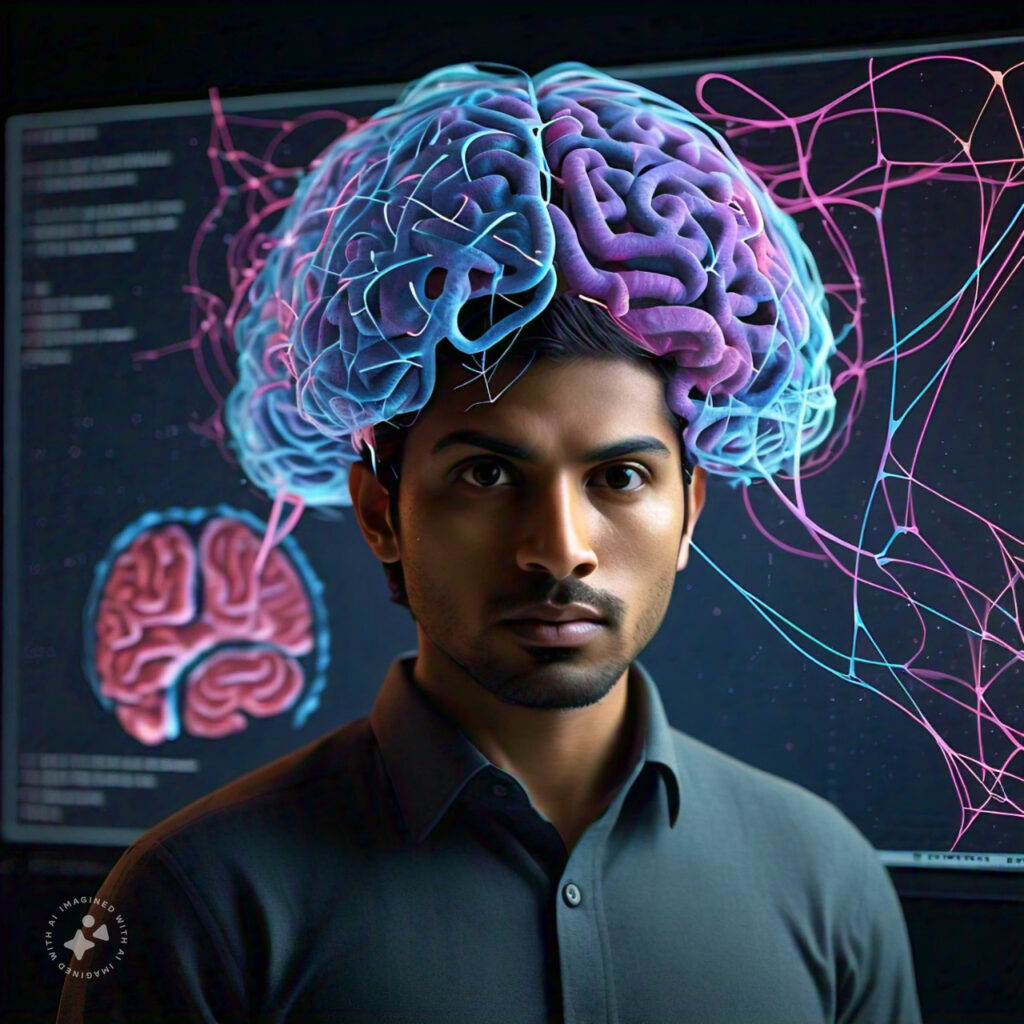 AI Learning
AI LearningCoursera's "AI for Everyone": Like AI Summer Camp
Imagine going to a summer camp where you learn all about AI - that's what Coursera's "AI for Everyone" feels like!
This course, created by AI expert Andrew Ng, is perfect for beginners. It's like having a friendly camp counselor explain AI in a way that's easy to understand.
Fun fact: Over 1.4 million people have already taken this course! According to Coursera's 2023 Impact Report, it's one of their most popular tech courses.
You'll learn about machine learning, data science, and even how AI is changing different jobs. The best part? You can finish it in just 6-8 hours - that's shorter than a day at summer camp!
AI Learning: A Visual Journey

AI in the Workplace
AI is transforming office environments, enhancing productivity and decision-making processes.

Data-Driven Insights
Advanced AI algorithms analyze vast amounts of data to provide valuable business insights.
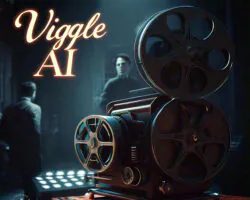
The Future of AI
AI continues to evolve, promising groundbreaking advancements across various industries.
edX's "AI for Beginners": AI School for Kids
EdX's "AI for Beginners" is like going to a special AI school for kids. This course makes learning about AI feel like solving fun puzzles and playing cool games.
Did you know that by 2025, 97 million new jobs will be created because of AI? The World Economic Forum reported this in their Future of Jobs Report.
This course helps you get ready for that future!
https://justoborn.com/ai-learning/
No comments:
Post a Comment